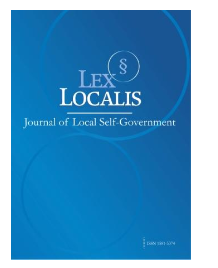STUDY OF THE UNIQUENESS OF FARMER’S JOGLO HOUSES: THE ROLE OF CULTURE IN DETERMINING HOUSE ORIENTATION
DOI:
https://doi.org/10.52152/w5ra2533Keywords:
Orientation, Locality, Farmer’s Joglo, Contexts, CultureAbstract
This article aims to explore the uniqueness of traditional housing in terms of its culture. Specifically, this paper examines how local culture influences house orientation. In architecture, orientation is emphasized by context, such as the roads, sun paths, views, and wind. However, it has been suggested that culture may be an important determinant of building orientation. Understanding how a culture influences the orientation of a building can enrich discussions about residential architecture, that focus on local culture. This study was conducted using a descriptive qualitative methodology. A case study was conducted on the Joglo House in the Pondokrejo Village. The Joglo houses are unique in that they use culture as a basis for determining their orientation. Direct observation and interviews were used for data collection. The analysis is conducted by identifying the themes that emerged from the case study and then constructing them into a conclusion. As a result, it was determined that a culture-based orientation was based on birth date. The orientation is determined by Javanese calendar calculations, occupants, and the degree of the owner. The findings can contribute to enhancing the culturally based traditional architectural residential approach, especially when it comes to determining the orientation of a house.
Downloads
Published
Issue
Section
License
Copyright (c) 2025 Lex localis - Journal of Local Self-Government

This work is licensed under a Creative Commons Attribution-NonCommercial-NoDerivatives 4.0 International License.








